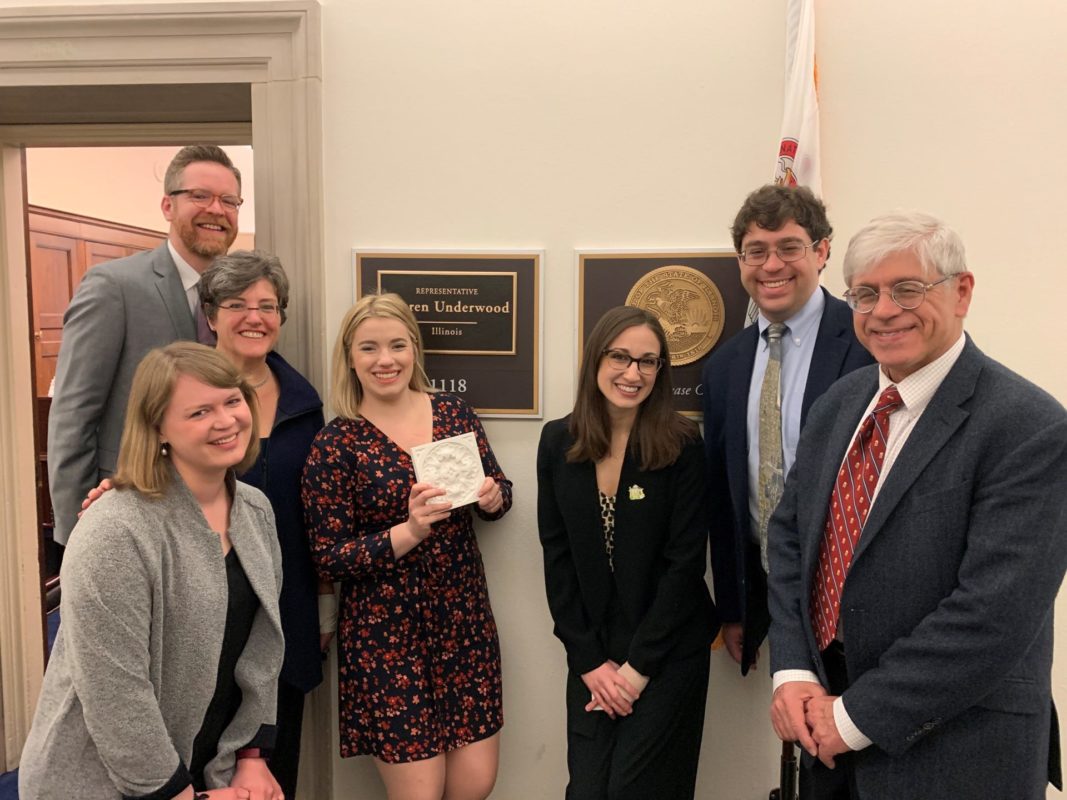April 23, 2020
By Liz Peterson, Skyline Council Member
Last month, Skyline Council members and staff of Landmarks Illinois attended Preservation Action’s Advocacy Week in Washington, D.C. The goal of the week is to assemble preservation professionals from across the country to lobby for policies and funds that protect America’s historic places.
The week began with a joint meeting with the National Conference of State Historic Preservation Officers (NCSHPO) to prepare attendees with talking points and tips on how to have effective conversations with elected representatives. NCSHPO supports government officials working in preservation and also represents preservationists across the country who are passionate about saving places.
“They drilled home the idea that we, as preservation advocates, are not an afterthought: We are voters, we are constituents, we are citizens, we are resources, and the Congressional representatives we meet with will care about what we have to say,” said Rachel Firgens, Skyline Council member and associate with MacRostie Historic Advisors.
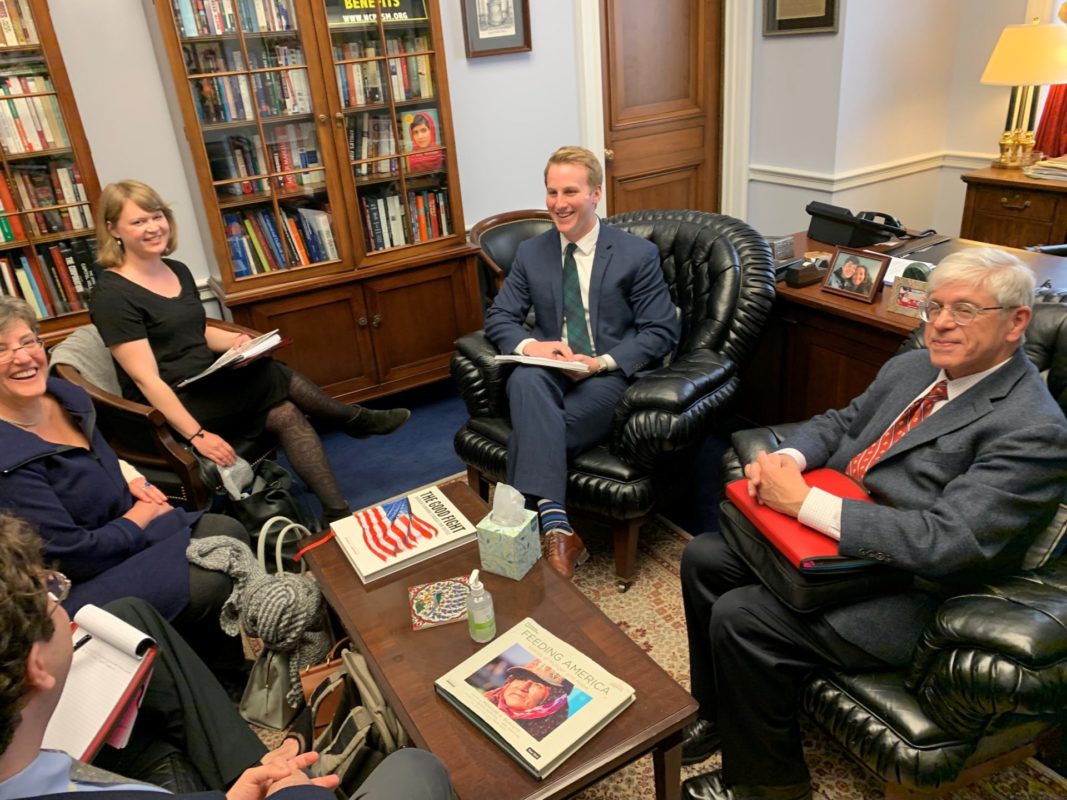
(RACHEL FIRGENS (SECOND FROM LEFT) AND MEMBERS OF THE ILLINOIS DELEGATION MEET WITH MITCH LOHR OF CONGRESSWOMAN JAN SCHAKOWSKY’S OFFICE. ALSO PICTURED IS ELLEN STONER OF ALTUSWORKS AND THOMAS KLEIN.)
Following discussions with the NCSHPO, conference attendees met with Illinois U.S. Representatives and their staff, coordinated by Frank Butterfield, Director Landmarks Illinois’ Springfield Office. In all, the Illinois delegation visited all 18 Illinois House offices and met with five U.S. Representatives of Illinois in person.
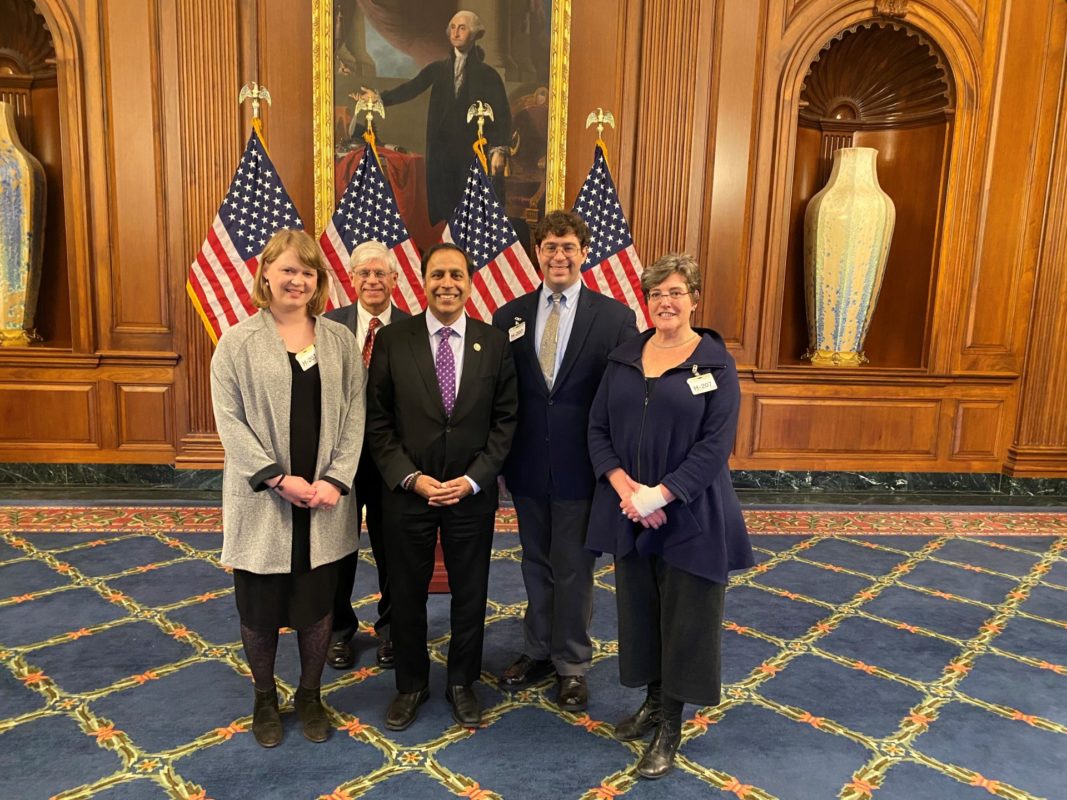
(FIRGENS (LEFT) AND FELLOW SKYLINE COUNCIL MEMBER CARL KLEIN (SECOND FROM RIGHT) JOIN MEMBERS OF THE ILLINOIS DELEGATION TO MEET WITH U.S. REP. RAJA KRISHNAMOORTHI.)
Firgens said the Illinois delegation represented diverse backgrounds and areas of expertise. For example, members came from architecture firms and nonprofits and were knowledgeable in historic tax credits and economics. Prior to traveling to D.C., delegates researched HTC projects in Illinois so they could refer to them in conversations with lawmakers and show how the rehabilitation and reuse of historic places has had positive impacts on the communities the U.S. Representatives serve.
The HTC has been a major success since its inception in 1976, encouraging private investment in the preservation of historic buildings across the nation. It has sparked rehabilitation of 44,000 properties in the U.S., created more than 2.7 million jobs and produced 166,000 low- and moderate-income affordable housing units, according to a 2018 National Park Service report.
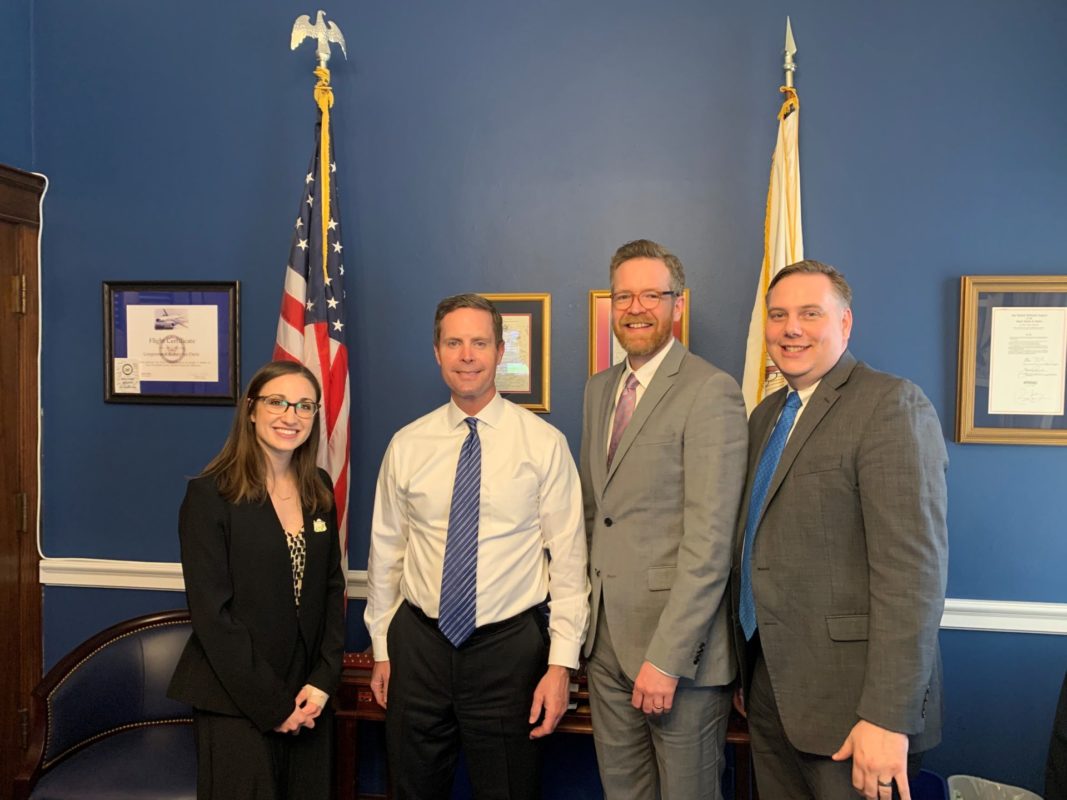
(ALYSSA FRYSTACK (LEFT) AND LANDMARKS ILLINOIS SPRINGFIELD OFFICE DIRECTOR FRANK BUTTERFIELD (SECOND FROM RIGHT) MEET WITH U.S. REP. RODNEY DAVIS.)
Another major talking point to encourage continued support of the HTC is its success since its inception in 1976. The HTC encourages private investment in the preservation of historic buildings across the nation. It has sparked rehabilitation of 44,000 properties in the U.S., created more than 2.7 million jobs and produced 166,000 low- and moderate-income affordable housing units.
Preservation advocates are also currently encouraging lawmakers to support the Historic Tax Credit Growth and Opportunity Act (HTC-GO), which would provide additional investment in smaller rehabilitation projects and strengthen the HTC that was thankfully retained but slightly diminished in the 2017 tax reform. Currently, the HTC is a 20% credit applied to qualified rehabilitation costs for certified historic structures, claimed over five years. The HTC-GO Act would increase the credit to 30% for projects with rehabilitation expenses of less than $2.5 million. With this active legislation, introduced in May of 2019, maintaining a working relationship with Congress and legislative staff is essential to make this bill a priority.
“Participating in Advocacy Week reaffirmed to me that in order to keep the field moving forward and implement good preservation policy, we have a responsibility to help forge open, long-term lines of communication with our elected officials at every level,” said Alyssa Frystack, Skyline Council member and research and data analyst at PlaceEconomics.
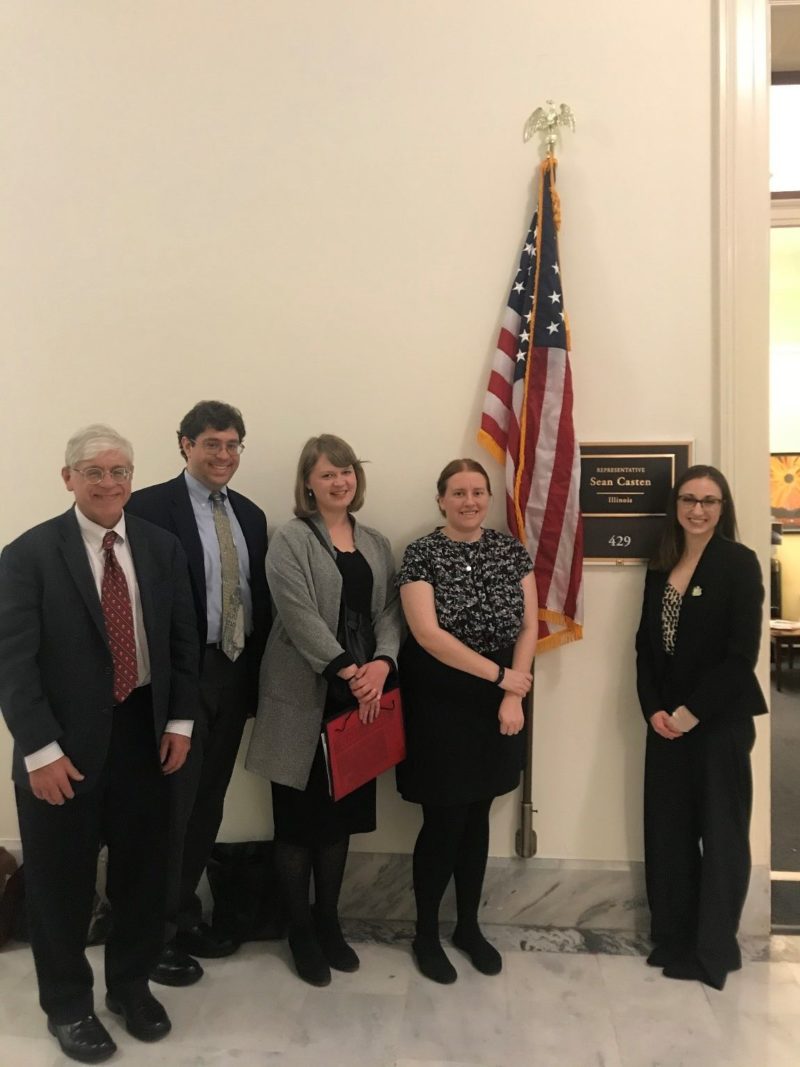
(FROM LEFT TO RIGHT: THOMAS KLEIN WITH SKYLINE COUNCIL MEMBERS CARL KLEIN, RACHEL FIRGENS AND ALYSSA FRYSTACK OUTSIDE OF U.S. REP. SEAN CASTEN’S OFFICE.)
As the world responds to the COVID-19 pandemic, reaching the goals set at Preservation Advocacy Week will likely be more challenging. Yet Illinois delegates who attended Advocacy Week last month still hope to continue to have open lines of communication with elected officials and emphasize the importance of legislation like HTC-GO, which will support economic development in communities hit hard by the current crisis.
Overall, delegates were impressed by how well-received their ideas were from U.S. Representatives and staff who they met with, and they plan to maintain their momentum toward increased policy support for historic preservation efforts.
(TOP PHOTO: THE ILLINOIS DELEGATION MEETS WITH U.S. REP. LAUREN UNDERWOOD’S OFFICE.)
About the author
Liz Peterson is the Marketing and Communications coordinator for FLATS, a subsidiary of CEDARst Companies, an integrated real estate development firm that specializes in adaptive reuse and historic renovation projects in the multifamily sector. Liz received her B.A. in Journalism from DePaul University. She is a commissioner for the Uptown Special Service Area and is a member of the Skyline Council for Landmarks Illinois.

